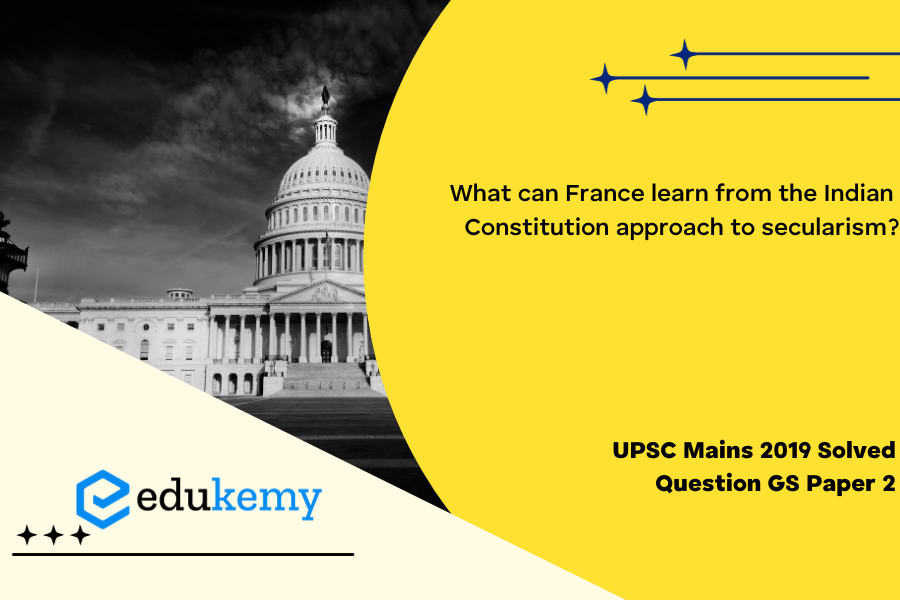France, a nation with a rich history deeply intertwined with the principles of liberty, equality, and fraternity, has long grappled with the concept of secularism, or “laïcité.” In recent years, the French approach to secularism has faced scrutiny and debate, particularly in its efforts to balance religious freedom with the preservation of a strictly secular public sphere. As France continues to navigate the complexities of a diverse and multicultural society, it may find valuable lessons in the Indian Constitution’s approach to secularism. India, with its mosaic of religions, cultures, and traditions, has adopted a unique form of secularism that seeks not just the separation of religion and state but also promotes a positive and inclusive engagement with diverse faiths. Exploring the Indian constitutional framework may offer insights for France as it seeks to foster social harmony and uphold the principles of secularism in an evolving global landscape.
Tag: Comparison of the Indian Constitutional scheme with that of other countries.
Contents
Decoding the Question:
- In Introduction, we can start by defining secularism.
- In Body,
- Discuss how France emerged as a secular state.
- Also, write how France can learn from the Indian Constitution’s approach towards secularism.
- In Conclusion, try to summarize the answer and write the importance of Indian secularism.
Answer:
Secularism is the constitutional principle that provides the separation of the State from religious institutions.The term ‘secular’ was added to the Preamble by the 42nd Amendment Act of 1976; the spirit of secularism in India derived from Indian cultural ethos and based on the philosophy of ‘Sarva Dharma Sambhava’.
European countries like France have struggled to find a middle way between secularism and state religion that combines national and religious identity, and where ethnic and religious minority groups can co-exist within state’s institutions. This can be seen in the banning of Islamic clothing, kosher or halal meals and burqas in France.
Secularism in France:
- France is a secular democratic social Republic guaranteeing that all their citizens, regardless of their origin, race, or religion, are treated as equals before the law and respecting all religious beliefs.
- It emerged as a secular state as per the law of 1905, which separated churches and states.
- In France, the state tries to push religion into the private sphere, where religious symbols can not be publicly displayed. Indian secularism has no such objectives and special rights are given to different communities, like- Muslims have personal laws and Sikhs are allowed to carry Kripans (Knives).
- After several terrorist attacks like Charlie Hebdo etc. in 2015 and 2016, numerous legal actions were taken by the French government to counter religious intolerance.

Learning from the Indian Secularism:
- The Indian Constitution is committed to secularism, where the State is not aligned with any one religion.
- Indian Constitution gives each individual the right to observe their religious practices and gives minorities the right to set up their own religious and educational institutions.
- The State maintains a “principled distance” from all religions and intervenes wherever necessary. For example -the Sabarimala Temple, Triple talaq issue, etc.
- Respecting religiosity through making space for a plurality of religious observances and cultural practices is a key feature of Indian secularism.
- The government also accommodates various religious differences. It has a policy of setting up Departments of Religious endowments, Wakf Boards, etc. It also appoints Trustees to these boards. The Indian government also supports various minority educational institutions.
- On the other hand, in France, the State cannot give any financial support to educational institutions run by religious communities.
- Indian secularism has no restrictions on the social and cultural practices of people, and special rights are given to different communities Muslims have personal laws and Sikhs are allowed to carry Kripans (Knives), etc.
French secularism implies the absolute separation between State and Church (or religion in the broadest sense). Its everyday manifestation is striking because it is so firmly embedded in public life. Thus, Indian secularism is not an end in itself but a means to address religious plurality and aims to achieve peaceful coexistence of different religions. In times of globalization, when almost all countries have now become multi-religious, it is the need of the hour to learn from Indian secularism.
In case you still have your doubts, contact us on 9811333901.
For UPSC Prelims Resources, Click here
For Daily Updates and Study Material:
Join our Telegram Channel – Edukemy for IAS
- 1. Learn through Videos – here
- 2. Be Exam Ready by Practicing Daily MCQs – here
- 3. Daily Newsletter – Get all your Current Affairs Covered – here
- 4. Mains Answer Writing Practice – here


